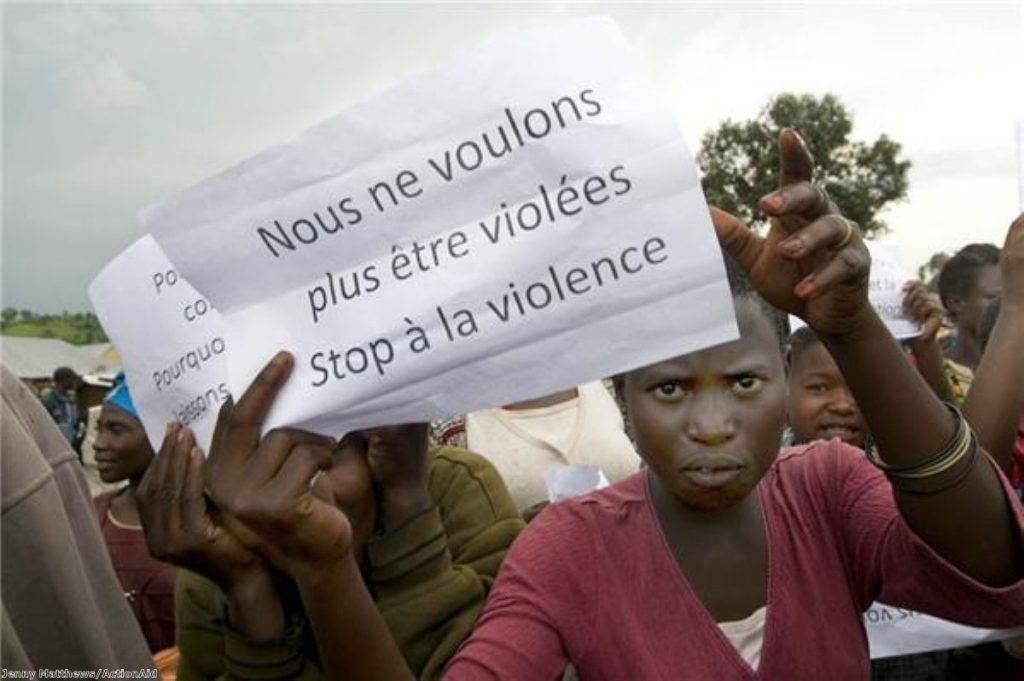UK ‘against DRC intervention’
Britain is opposing an armed intervention in the Democratic Republic of Congo (DRC) by the European Union.
Foreign secretary David Miliband is believed to have argued against the deployment of a military force of around 1,500 troops at a meeting of EU foreign ministers in Brussels yesterday.
Liberal Democrat foreign affairs spokesman Edward Davey said: “Gordon Brown’s hypocrisy on the DRC is shaming Britain. How can he promise not to turn his back on Congolese women and girls while blocking the only real action the EU can take right now to stop the rape and slaughter in the country?”
Britain and Germany oppose an intervention. They prefer the use of forces from Monuc, the UN peacekeeping contingent in the country, to resolve problems in DRC’s unstable eastern region.


An estimated 250,000 people have been displaced as a result of fighting in North Kivu province between government troops and rebel fighters loyal to renegade leader Laurent Nkunda.
Although Monuc has dispatched some troops to the region reports on the ground suggest they are able to make little difference to escalating tensions.
Last night’s meeting in Brussels saw divisions grow in the EU over how to respond.
One diplomat told the Guardian newspaper: “Miliband is adamant that the EU should not get involved. Britain and Germany are leading the resistance. But something has to be done.”
Pressure continues to grow for an international intervention by human rights campaigners as talks struggle to make real progress.
In Nairobi, Kenya, talks between Gen Nkunda and the DRC government mediated by UN secretary general Ban Ki-moon’s special envoy Olusegun Obasanjo continue to move forward.
But there is no sign of meaningful advances as talks remain in preparation stages.
“I am pleased to note that they are making steady progress towards agreement on the ground rules for substantive discussions,” Mr Obasanjo said yesterday.












